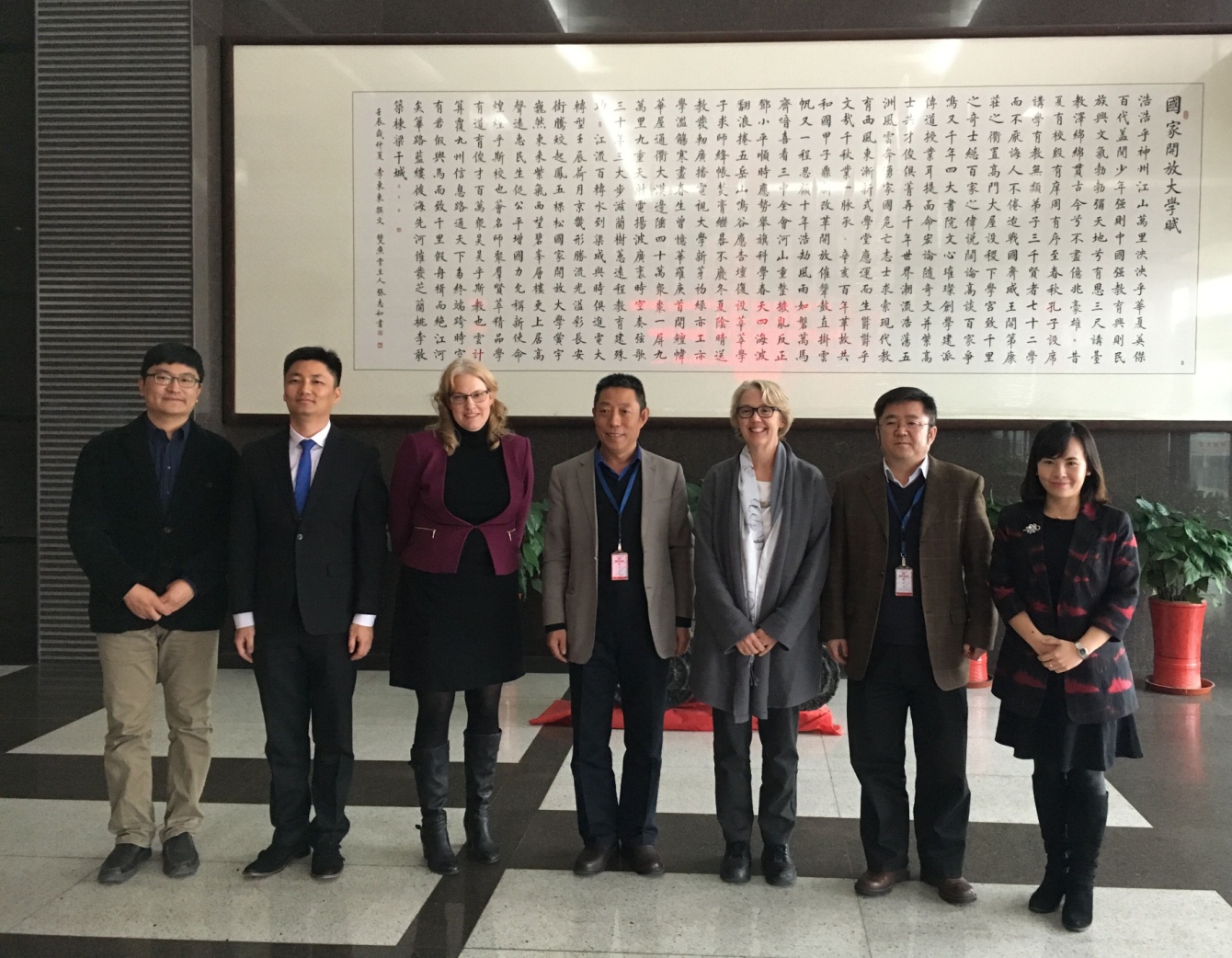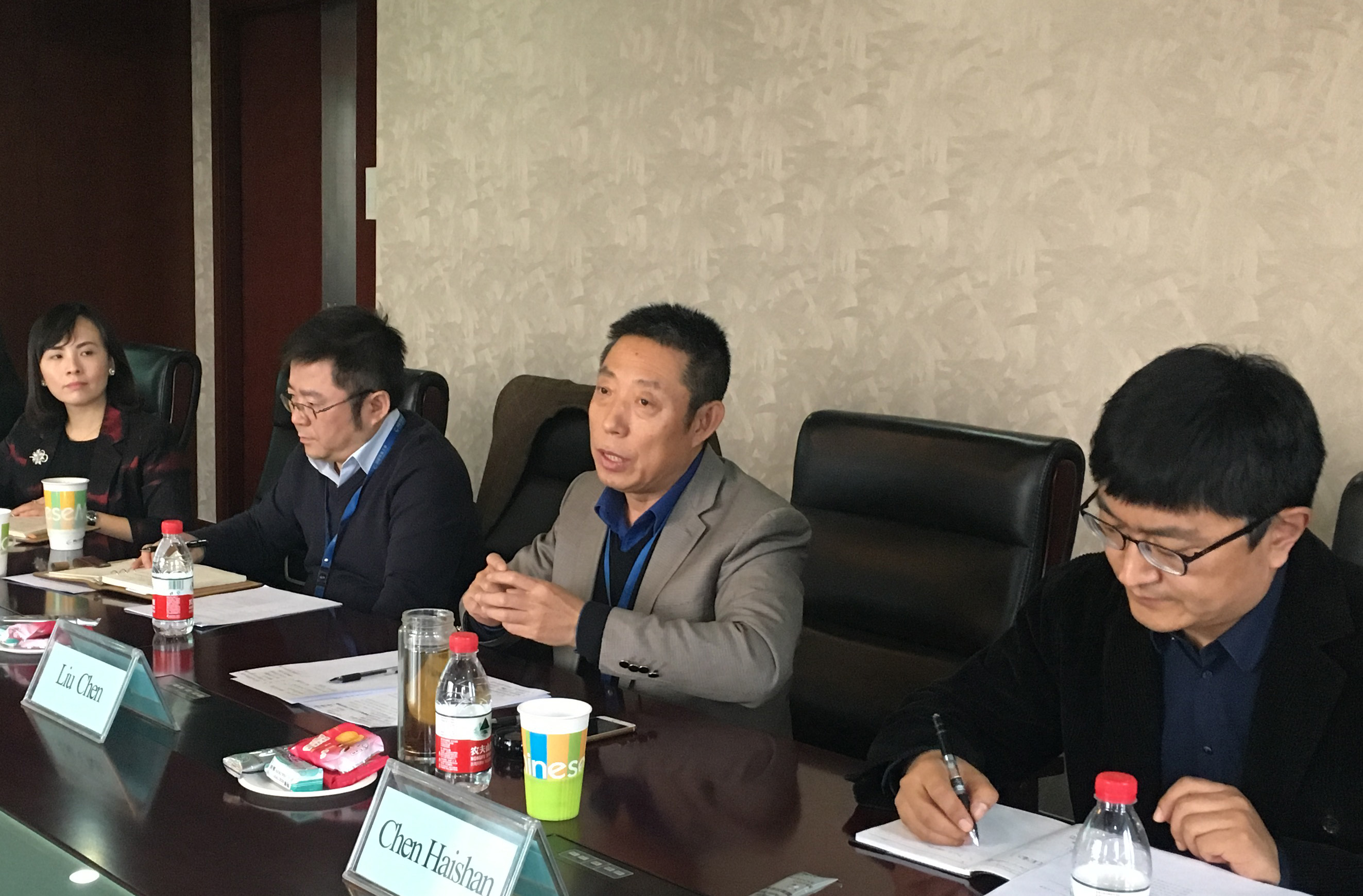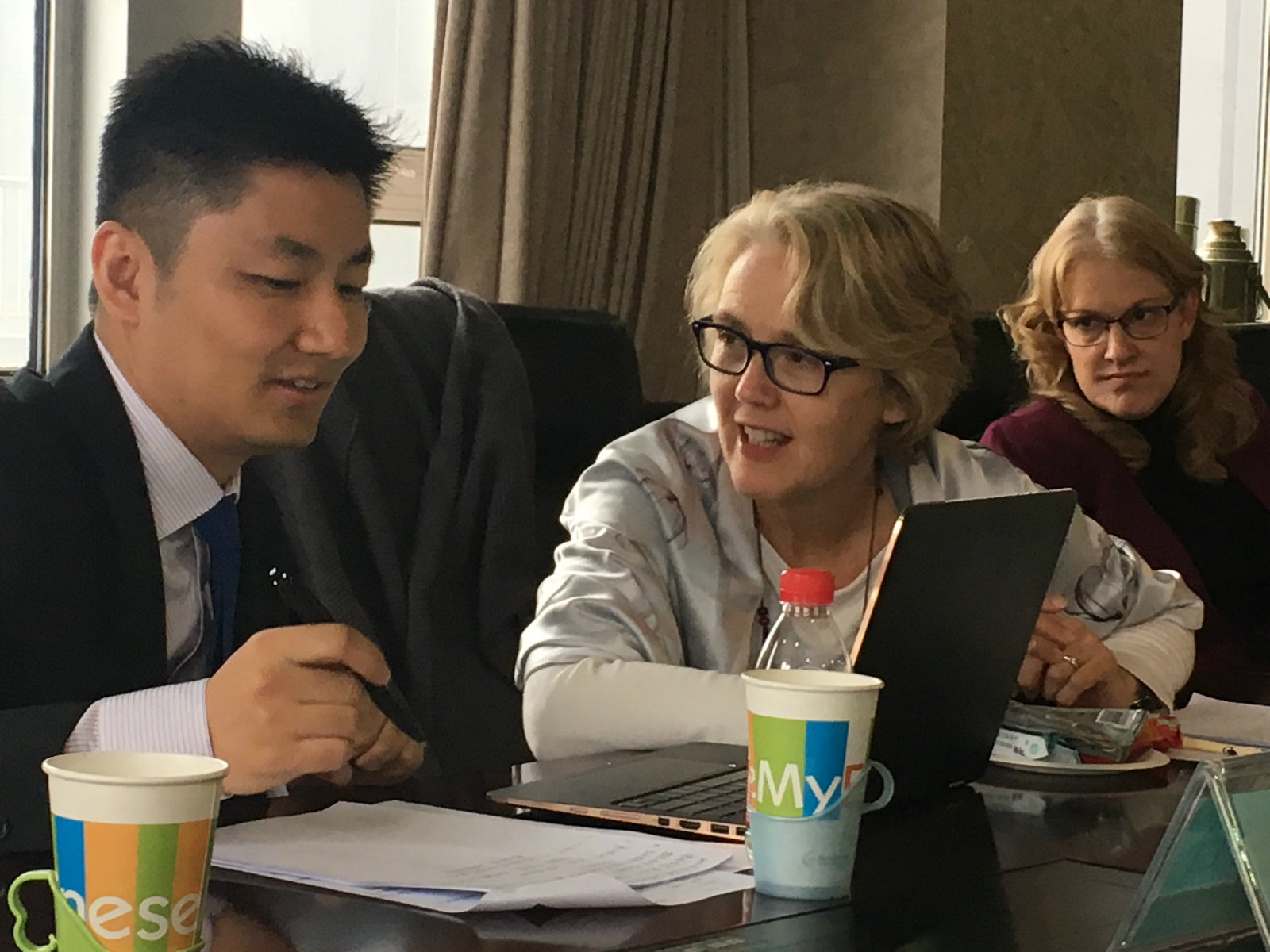 Reporting from the Chinese Language Centre at the Open University of China (OUC). On 13th Dec., 2016, the Confucius Institute’s annual working meeting was held at the OUC’s headquarters, the Wukesong campus.
Reporting from the Chinese Language Centre at the Open University of China (OUC). On 13th Dec., 2016, the Confucius Institute’s annual working meeting was held at the OUC’s headquarters, the Wukesong campus.
This year happens to be the 10th anniversary of the Confucius Institute’s founding by the OUC and Michigan State University (MSU). At the meeting, they reviewed past work and discussed future opportunities for cooperation and development. The meeting carried a profound significance. Participants included OUC Vice President Liu Chen, Department of International Cooperation and Exchange Deputy Director Chen Haishan, CI-MSU’s Executive Director Lynn Paine, CI-MSU Deputy Directors Nancy Romig and Li Jiahang, as well as heads and related personnel from both the OUC’s Confucius Institute Affairs Office and Chinese Language Centre. The meeting was presided over by the Chinese Language Centre’s executive deputy director, Yang Yongbo. At the meeting, OUC Vice President Liu Chen extended a warm welcome, on behalf of the OUC, to American representatives, encouraging their participation in the meeting. He fully affirmed the series of achievements made by the CI-MSU during the past decade. Subsequently, the Chinese Language Centre deputy director, Wang Shuo, with their CI-MSU counterpart, Li Jiahang, made a joint report on the work of CI-MSU’s Confucius Institute in 2016. This year, the CI-MSU successfully applied to the College Board to provide an online AP Chinese course. In terms of training Chinese language teachers, CI-MSU dispatched forty-three students to engage in Chinese language teaching across thirteen districts and three states. The number of trainees reached 8,000. In November, CI-MSU successfully held an online Chinese Teaching Forum & Workshop, where it shared its distance Chinese language teaching theory and practices. Traditional Chinese music concerts, dragon boat races, and other colourful activities were held, and CI-MSU played a valuable, positive role in disseminating Chinese culture across the U.S.A.

As a Chinese Learning Resources Development Centre, the Chinese Language Centre was organising and compiling a textbook oriented towards American senior high school students. The paper textbook and online course will be completed periodically and used in CI-MSU next year. The Chinese Language Centre also optimised its MyEChinese teaching platform to utilise in conjunction with the implementation of online teaching. The construction of an International Chinese Language Education degree programme was carried out to enhance the core competitiveness of the OUC in the discipline of teaching Chinese to foreign speakers; boost Chinese language teaching faculty cultivation, both prior to employment and through on-the-job training; and build a reserve of instructors to be dispatched. The Chinese Language Centre has thus far selected and dispatched three Chinese language instructors; received nine students (who received scholarships from Hanban, the Chinese governmental agency behind the Confucius Institute) from the Republic of Tajikistan, Romania, and South Korea; organised online and offline teaching and management; organised five HSK test sessions for over 400 students; applied to Hanban to build an international base of distance and informatised Chinese and vocational education.

At the meeting, both sides held deep and thorough discussions on potential cooperation between MSU and the OUC to develop the Confucius Institute. Yang Yongbo, on behalf of the CI-MSU’s Chinese Language Learning Resources Development Centre, talked about the vision for follow-up work, including suggesting adopting the textbook recently developed for American senior high school students for use in CI-MSU’s AP course; strengthening cooperation with summer camps; carrying out cooperative research; and jointly participating in the global Confucius Institute meeting to be held at Western Kentucky University. CI-MSU’s Dr. Lynn Paine highly rated the suggestions put forth by the OUC, and outlined the next steps necessary to strengthen cooperation with the OUC and enhance the CI-MSU’s presence. She hoped positive cooperation would be carried out, such as learning tour activities and summer camps oriented towards different groups; leveraging both parties’ course resources to develop new courses; and carrying out joint scientific research in the field of online Chinese language teaching.

Finally, after summarising the present situation, OUC Vice President Liu Chen offered constructive suggestions on the Confucius Institute’s future development, with an eye toward comprehensively enhancing the presence of the Confucius Institute in both Michigan State University and the OUC. Through the Confucius Institute, both sides hoped for more exchanges and opportunities to cooperate, such as with courses, scientific research, mutual accreditation, and teaching faculty training. He hoped that the Chinese and foreign teams at the CI-MSU would improve their cooperation mechanisms, cooperate more closely, take full advantage of both parties’ resources, and enhance the role of the Confucius Institute in Chinese teaching, teacher training, and cultural transmission. This will not only serve the national education strategy of opening-up, but also contribute to promoting the OUC’s internationalisation
.
By Tan Lu, OUC